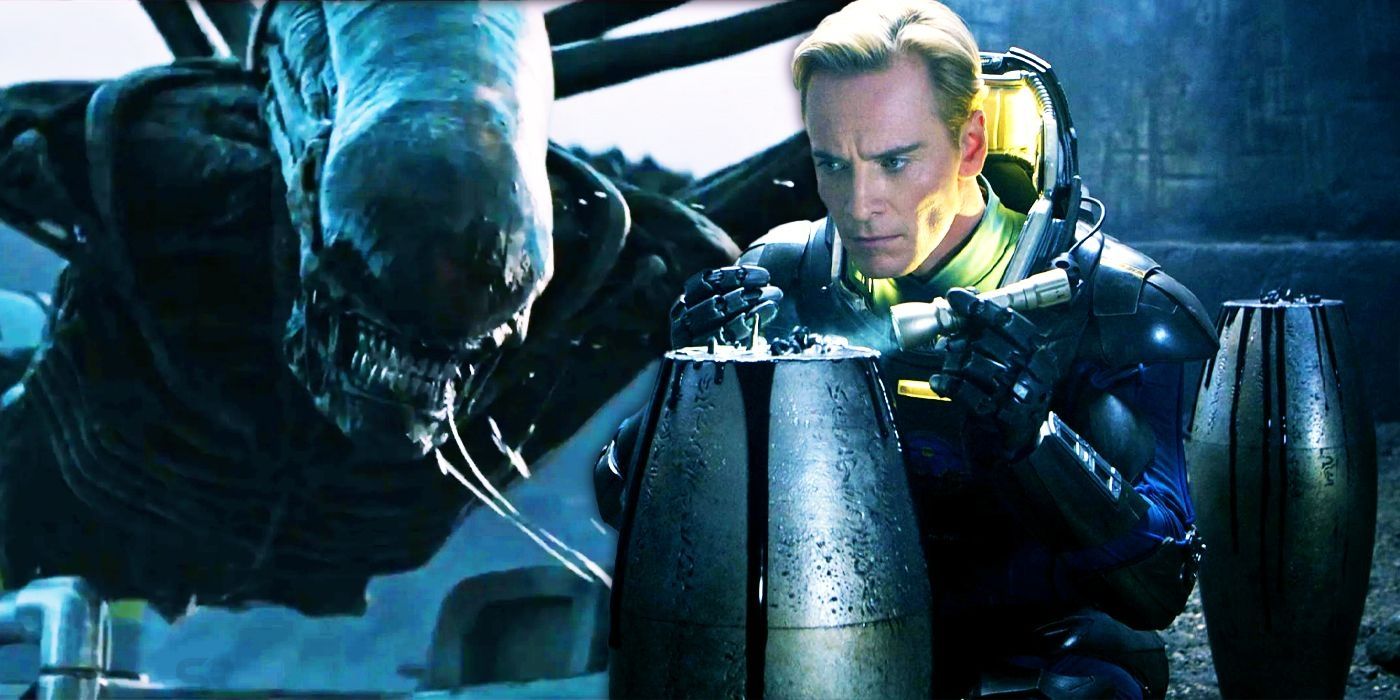The most ruthlessly apathetic and scientifically-driven synthetic in Alien lore, David, is known for his experiments regarding the Black Goo mutagen following his discovery of the substance in Prometheus. However, despite the fact that his cruel experiments are his claim to fame, one comic continuation of Prometheus’ continuity reveals that David wasn’t as smart as he thought he was, as he never figured out that he was missing one crucial step in his tests with the Black Goo and human subjects–which is ironic given that the crucial step he was missing, was him.
In the 2012 film Prometheus, a team of human space explorers (and one synthetic) travel to the far-off world of LV-223 in search of an alien species they believe seeded human life on Earth. When they get there, all they find is a desolate moon with remnants of civilization, including a large, seemingly abandoned structure. Inside this fortress are a number of hidden chambers, and one of them contained canister after canister of a strange, black substance that would become commonly known as Black Goo. The synthetic on the team, David, became fascinated with this substance, and he wanted to see what it could do. So, David exposed one of the crew members to the Black Goo, and watched as the unfortunate human mutated into something akin to a zombie–something that wouldn’t have happened if David had just injected himself with the Black Goo first.
Synthetics are a Filter for the Black Goo, Making it Safer for Humans
In Alien vs Predator: Fire and Stone #3 by Christopher Sebela and Ariel Olivetti, fans are thrown back into the continuity established by Prometheus, as a crew who originally traveled to LV-223 to find the missing crew of the Prometheus is now making their escape from the hostile world. Unfortunately, that hostility followed them in the form of a synthetic named Elden, who was mutated by the Black Goo while on LV-223 by a human doctor named Francis, who was running an experiment to save his own life. Francis was dying of a terminal illness, and he believed the Black Goo was his key to survival. So, in an effort to ‘filter’ the substance (an idea he got from preexisting research), Francis injected the Black Goo into Elden, turning the synthetic into a powerful mutant with a healing factor, heightened strength, and a higher level of cosmic sentience–and he was just the vessel.
In this issue, as Elden is chasing after Francis to exact his vengeance, Francis is able to derive a sample of Elden’s ‘blood’, and inject it into himself, as he was confident in the theory that the Black Goo could be used to cure any illness after being filtered through an artificial life form–and for the most part, he’s correct. Francis is, in fact, cured of his terminal illness after injecting himself with the refined Black Goo, but that’s not all that happens. Mere moments after exposure, Francis begins to mutate similarly as Elden, and in a much more sustainable way than the mutation that occurred in Prometheus. Rather than being turned into a mindless zombie, Francis became a ‘super’ version of himself, complete with bulging muscles, an autonomous bodily defense system, and a healing factor that even Deadpool would envy.
The result of human exposure to the Black Goo is infinitely better for prolonged survival after the Black Goo is filtered through a synthetic–a crucial step David was missing in Prometheus that he could have exploited if he was willing to offer himself up for his own experiments like he so cruelly did to the unfortunate humans he came across in the Alien films.


